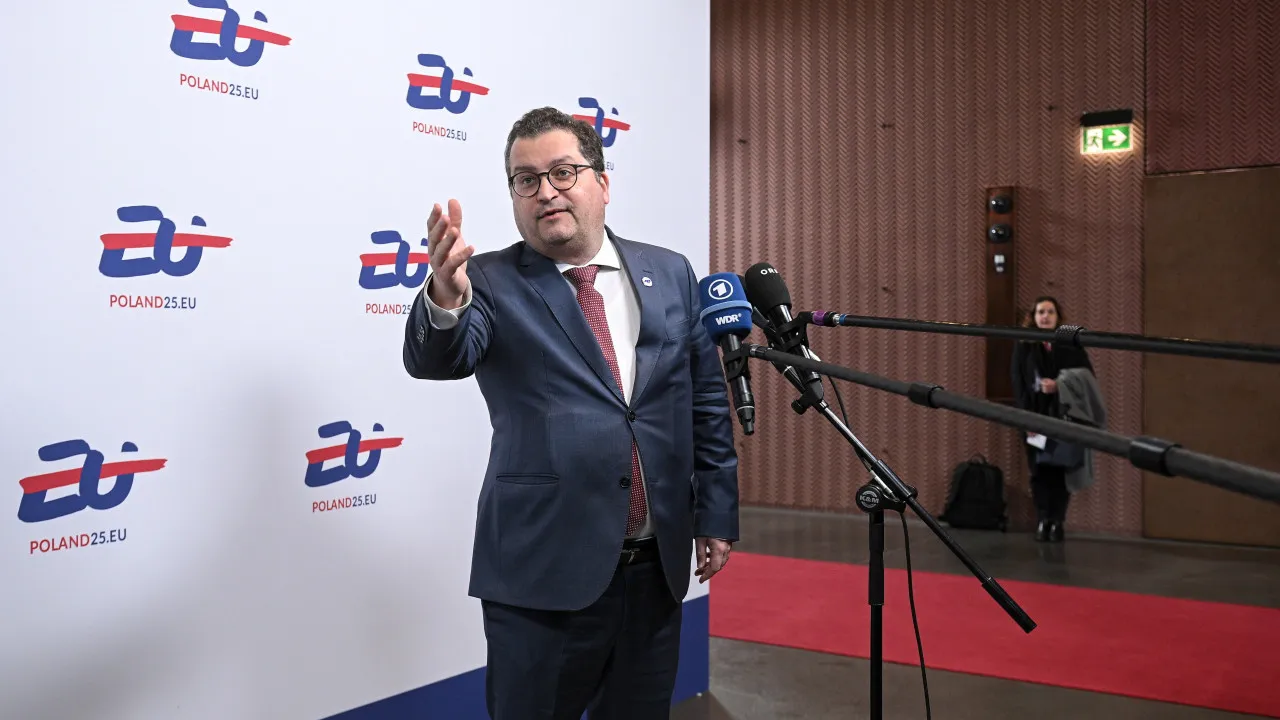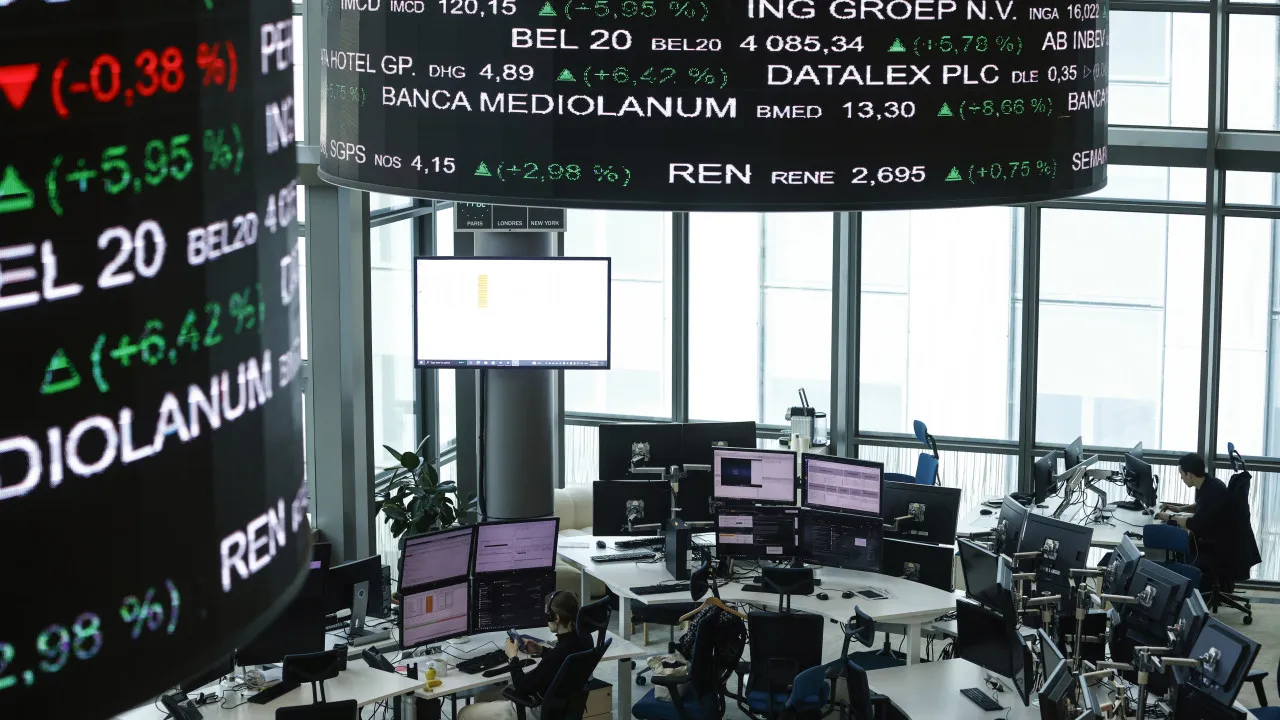Europe wants more countries to exclude Huawei from 5G. Chinese manufacturer complains of “discriminatory judgments” and guarantees it will fulfill contracts in Portugal.
An Irishman, an Englishman, a Dutchman and a Frenchman met in Brussels at a Huawei cybersecurity center, run by a Chinese, with a group of Portuguese journalists. The meeting with the Chinese group ‘s top cybersecurity executives took place last week and was organized after the Portuguese government decided to pull the tech manufacturer away from 5G networks, classifying it as a “high-risk” supplier.
Huawei: “As long as we have customers who need us, we will stay in Portugal
The assessment by the Cyberspace Security Council (CSSC) results in telecom operators having to remove any Huawei equipment from their networks within a period of time that could vary between three and five years.
A decision that caught Huawei off guard and that surprised by the level of “comprehensiveness” in terms of technology. “Most countries focus only on 5G, but the Portuguese decision may have effects on 4G [already installed],” admitted the Englishman Jeremy Thompson, cybersecurity and privacy officer at Huawei.
Portugal is “going much further than any other country to date, with the exception of the United States,” the economist added.
The decision to restrict or ban Huawei or ZTE in 10 EU countries is justified
Where does that leave the future of the company in a country where it employs about 130 people? “As long as we have customers with our technology who need our support and our services, we will continue. That has been the case in the UK,” where there is a seven-year deadline (until 2027) to replace technology, Jeremy Thompson stressed.
“We have cut the number of people significantly, because we are not selling as much anymore, but we have kept them in the [customer] support area,” the manager added. In Portugal, the guarantee is also to fulfill all contractual obligations.
Brussels tightens its grip on Huawei and Portugal confirms its “security concerns”.
The heads of Huawei (which employs about 13,000 people in Europe) have no doubt that the movement being generated in Europe – and which has already led to the exclusion of Huawei in the UK, but also in Sweden – has to do with geopolitics rather than technical criteria. “The clue is in the name: who is leading this movement? It’s the United States Department of Commerce. This is a matter between governments,” assures Thompson.
“There are decisions that have been being made that use the security argument, but our belief, and we think our customers’ as well, is that security is not the issue,” stressed Jaap Meijer, cybersecurity and privacy officer at Huawei’s Brussels cybersecurity center, in which Huawei allows customers and others to remotely test the source code of its software.
“It would be very helpful if governments would be honest about this issue and assume that they are making decisions based on geopolitical grounds. They have the right to do so, but they should use the right arguments and then we would already have a different discussion,” he told reporters.
5G: China wants Portugal to adopt “rational” and “autonomous” policies after its decision
“Just look at the reaction of the operators,” Jeremy Thompson stressed: “Operators would continue to buy from Huawei, if you let them, because they are quite comfortable with their own ability to manage the technology,” without fear of outside interference (namely from the Chinese state or entities at their service, which is one of the reasons that have been given for driving Huawei and ZTE away from European mobile networks).
Late decision
In Portugal, operators have stated that there is no Chinese technology in the nerve centers of their networks – the so-called core, where connectivity and management of all systems is ensured, and which is therefore the most sensitive part of the network and the one where a potential attack or collection of sensitive data would have the greatest impact.
Vodafone reportedly turned to the US-based Mavenir, and Nos and Altice (which signed a protocol with Huawei in 2018 for 5G development) to Finnish Nokia, according to information given by the companies.
Other suppliers mentioned by the operators are Sweden’s Ericsson and the US’ Cisco, but none have confirmed or denied the existence of Huawei equipment in what is referred to as the Radio Access Network (RAN), which includes the antennas and base stations.
It will depend on the presence of Huawei equipment in the networks that the cost of this CSSC deliberation (which will be supervised by Anacom) will be more or less expensive for operators, and more or less disruptive to their investment plans, including the speed with which they can continue to expand their coverage.
This is a decision that a source from the sector classified to PÚBLICO as “late” and that, although it could have been on the agenda for longer, could only move forward with the approval of the new Electronic Communications Law (LCE) in July 2022 (already after Brussels had started an infringement procedure against Portugal for delay in adopting European rules, which should have happened by December 2020).
It was the LCE that created the Security Assessment Committee (“set up under the Cyberspace Security Council”), which, once the analysis (which is confidential, for national security reasons) was completed, deemed as “high risk” the use of equipment from companies based in countries outside the European Union, the OECD or NATO.
But the decision comes with the operators already in full development of their networks. According to the latest balance made by the communications regulator, Anacom, in the last quarter of last year there were 5842 5G base stations installed in Portugal, most of which belonged to Nos.
Also, since 5G is an evolution of 4G, if any operator has Huawei equipment on its 4G network that is not compatible with those of so-called security vendors, all the pieces of this puzzle that work interconnectedly may need to be removed and replaced.
The question of money – that is, how much this decision will cost operators who are Huawei customers and who will pay for it – is one of many that have arisen and remain unanswered. Huawei officials have no doubt that consumers will end up footing the bill.
With this posture, Europe risks a delay in the implementation of 5G and will increase the price of equipment and services, they guarantee. For Huawei, which entered Europe 20 years ago and turned it into its second largest market (the area corresponding to Europe, Middle East and Africa represents 23% of its turnover), the alternative to compensate for the impact may be in markets with “great growth”, such as the Philippines, Indonesia and even South America.
Apparently indifferent to the question of cost, the Portuguese authorities stress that the issue is “exclusively technical” and “based on technical criteria that use elements from the European Union,” as the Minister of Defense, João Gomes Cravinho, reaffirmed on Friday in statements to the Lusa agency during a visit to the United Kingdom.
“The matter related to the security of our networks is not negotiable and is an exclusively technical decision,” the minister said, adding that the country will not fail to take “the decisions that are important for safeguarding security and sovereignty.”
Pressure is mounting from Brussels for more states to follow in Portugal’s footsteps. According to the European Commissioner for the Internal Market, the fact that only ten member states have been restricting or excluding high-risk suppliers “represents a major security risk” for the EU
Huawei wants to be heard
After the vice-president of the European Commission in charge of competition, Margrethe Vestager, used Twitter to praise the Portuguese deliberation (announced at the end of May), Brussels upped the ante and, on Thursday (the same day of the meeting in Brussels with Huawei executives), came to underline “its strong concern about the risks that certain mobile telecommunications network equipment suppliers pose to the security of the [European] Union.”
Without softening its speech, the Commission considered that the decisions adopted by some member states to restrict or exclude Chinese Huawei and ZTE from 5G networks “are justified and in line” with the risk assessment criteria approved in 2020 in the European toolbox on the cybersecurity of 5G networks (the “5G Toolbox”), because these two companies “do indeed pose substantially higher risks than other 5G providers.”
Shenzhen-based Huawei has officially responded, deeming these to be “discriminatory judgments,” and argued that publicly characterizing a supplier as high-risk “without a legal basis” hurts free trade principles. This qualification “should not be applied to any manufacturer without a justified procedure and a proper [company] hearing process.”
But pressure is mounting from Brussels for more states to follow in Portugal’s footsteps. According to the European Commissioner for the Internal Market, Thierry Breton, the fact that only ten member states have restricted or excluded high-risk suppliers “represents a major security risk” for the EU, placing it in a situation of great dependence.
In addition to the cybersecurity argument, the argument of the possibility of disrupting the logistical chains linked to the equipment is valid, which was very evident during the covid-19 pandemic and which Europe fears could be used as a weapon by the People’s Republic of China.
And a worsening of tensions between the two blocs cannot be ruled out, given the latest developments on the international scene: between April and May, the world saw new developments in the “boundless friendship” between China and Russia.
In April, Russian Defense Minister Sergei Shoigu visited Beijing; in May it was Prime Minister Mikhail Mishustin’s turn to travel to meet his Chinese counterpart, Li Qiang.
If the suspicion of sending Chinese weapons to Russia remains in the air, as was even reported, in Europe, after learning the lesson with the Russian gas, the time seems to have come to clarify what are or are not reliable partners.








